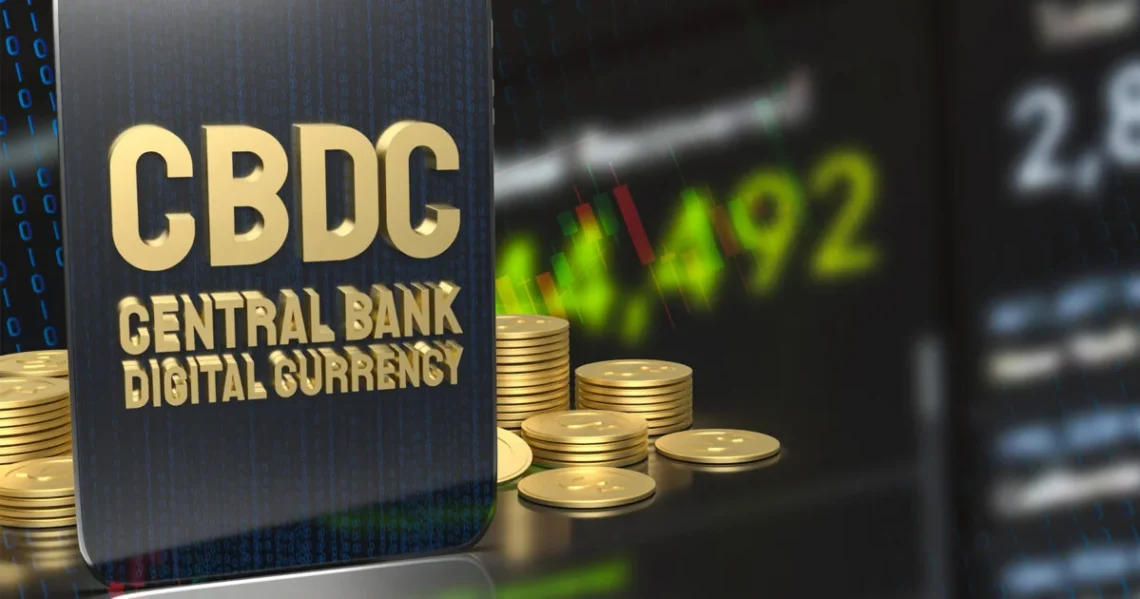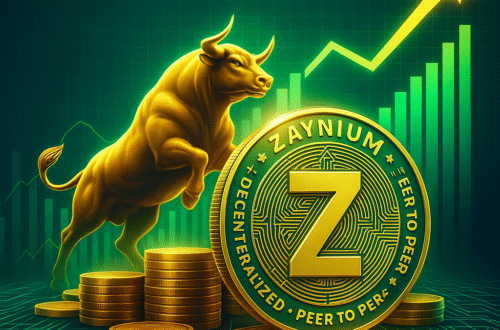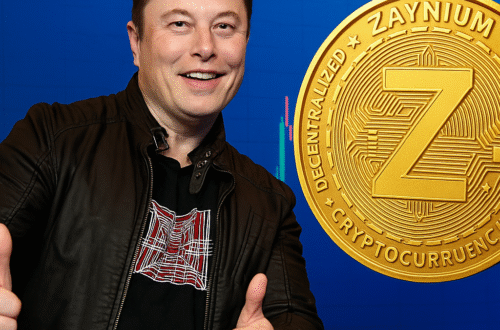The US Federal Reserve has taken a major step toward modernizing the financial system by launching a Central Bank Digital Currency (CBDC) pilot program, commonly referred to as the “Digital Dollar.” This move could revolutionize how money is transferred, stored, and used in the US economy.
But what exactly is a CBDC? Why is the Fed testing it? And how will it impact banks, businesses, and everyday Americans?
In this 2,000+ word, SEO-optimized article, we’ll break down:
✅ What is a Digital Dollar (CBDC)?
✅ Why is the US Testing a CBDC?
✅ The Federal Reserve’s Pilot Program – Key Details
✅ How Does the Digital Dollar Work?
✅ Banks & Investors Preparing for CBDC
✅ Privacy & Surveillance Concerns
✅ US vs. China & Other Countries in the CBDC Race
✅ What’s Next for the Digital Dollar?
Let’s dive in!
What is a Digital Dollar (CBDC)?
A Central Bank Digital Currency (CBDC) is a government-backed digital form of money, issued and regulated by the Federal Reserve. Unlike cryptocurrencies like Bitcoin, a CBDC is not decentralized—it’s fully controlled by the central bank 1.
Key Features of a US CBDC:
- Digital version of the US dollar (1 CBDC = $1)
- Direct liability of the Federal Reserve (safer than private stablecoins)
- Faster, cheaper transactions (compared to traditional banking)
- Programmable money (could allow automatic tax deductions, stimulus payments, etc.) 10
The US is not the first to explore CBDCs—China, India, and the Bahamas have already launched their own versions 12.
Why is the US Testing a CBDC?
The Federal Reserve has been studying CBDCs for years, but the pilot program marks a major shift from research to real-world testing. Here’s why the US is moving forward:
1. Competing with China’s Digital Yuan
- China’s digital yuan is already in use, and the US doesn’t want to fall behind in financial innovation 12.
- A Digital Dollar could help maintain the USD’s global dominance 10.
2. Faster & Cheaper Payments
- Current bank transfers take 1-3 days—CBDC transactions could settle in seconds 6.
- Lower fees for businesses and consumers.
3. Financial Inclusion
- Millions of unbanked Americans could access digital payments without needing a traditional bank account 10.
4. Fighting Private Stablecoins & Crypto
- With private stablecoins (like USDT, USDC) growing, the Fed wants to ensure government control over digital money 7.
The Federal Reserve’s CBDC Pilot Program – Key Details
The New York Fed, in collaboration with major banks like BNY Mellon, Citi, and Wells Fargo, has launched a 12-week pilot program to test a “regulated liability network” (a type of CBDC system) 12.
How the Pilot Works:
- Simulated transactions (not real money yet).
- Tests instant settlements between banks using blockchain-like technology.
- Focuses on wholesale banking (not retail CBDC for public use yet).
Participating Banks & Institutions:
✅ BNY Mellon
✅ Citi
✅ HSBC
✅ Mastercard
✅ PNC Bank
✅ TD Bank
✅ Truist
✅ U.S. Bank
✅ Wells Fargo 12
This pilot is a first step—if successful, the Fed may expand testing to consumer-level CBDC transactions.
How Does the Digital Dollar Work?
Unlike Bitcoin (decentralized) or bank deposits (private money), a CBDC is directly issued by the Fed. Here’s how it could function:
1. Two-Tier System (Likely Model for the US)
- Fed issues CBDC → Banks distribute it to consumers.
- Similar to how physical cash works today.
2. Digital Wallets
- Users may hold CBDC in Fed-approved digital wallets (via banks or fintech apps).
- Possible offline transactions (like cash).
3. Privacy Concerns
- Big debate: Will the Fed track all transactions?
- Some lawmakers want privacy protections to prevent government surveillance 14.
Banks & Investors Preparing for CBDC
The financial sector is racing to adapt to the potential CBDC future.
1. Banks Developing Digital Asset Services
- JPMorgan, Goldman Sachs exploring custody solutions.
- SEC rule changes now allow banks to hold crypto assets 7.
2. Investors Watching Closely
- Private equity & venture capital firms are investing in CBDC-related fintech 12.
- Bitcoin & crypto markets could be impacted if CBDCs gain traction.
3. Regulatory Shifts Under Trump Administration
- SEC & CFTC now more crypto-friendly, speeding up adoption 7.
- Ban on a US CBDC? Some Republicans want to block Fed-issued digital currency, favoring private stablecoins instead 1415.
Privacy & Surveillance Risks
One of the biggest controversies around CBDCs is government control over money.
1. Potential for Financial Surveillance
- Every transaction could be tracked by the Fed.
- “Anti-CBDC Surveillance State Act” (2025) seeks to ban Fed from issuing a CBDC over privacy concerns 14.
2. Programmable Money Risks
- Could the government freeze or limit spending? (Example: China restricts CBDC use for certain purchases) 10.
3. Public Distrust
- 74% of Americans oppose a CBDC due to privacy fears 15.
US vs. China & Other Countries in the CBDC Race
The global race for CBDCs is heating up.
| Country | CBDC Status | Key Features | |
|---|---|---|---|
| China | Launched (2020) | Used in Olympics, govt-controlled spending | |
| India | Pilot (2023) | Digital rupee for retail & wholesale | |
| Bahamas | Live (Sand Dollar) | First fully deployed CBDC | |
| US | Pilot (2025) | Testing with major banks | 1012 |
The US is playing catch-up, but its focus on private-sector collaboration could lead to a more open system than China’s.
What’s Next for the Digital Dollar?
1. Expansion of Pilot Programs
- More banks & fintech firms may join.
- Possible retail CBDC testing (for public use).
2. Political Battles Ahead
- Pro-CBDC vs. Anti-CBDC debates in Congress 1415.
- 2025 regulations will shape the future of digital money 7.
3. Global Implications
- If the US adopts a CBDC, it could reshape international trade & forex markets.
- Dollar dominance may strengthen—or face competition from other digital currencies.
Final Verdict: Will the US Adopt a CBDC?
The Digital Dollar is coming, but not without challenges.
✅ Pros: Faster payments, financial inclusion, competing with China.
❌ Cons: Privacy risks, government control, banking disruptions.
What do you think? Should the US launch a CBDC, or stick with private cryptocurrencies? Let us know in the comments!





